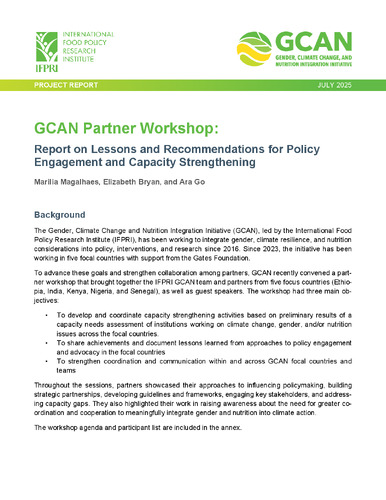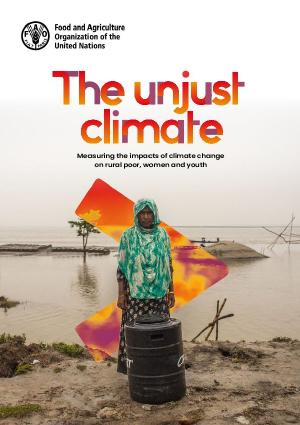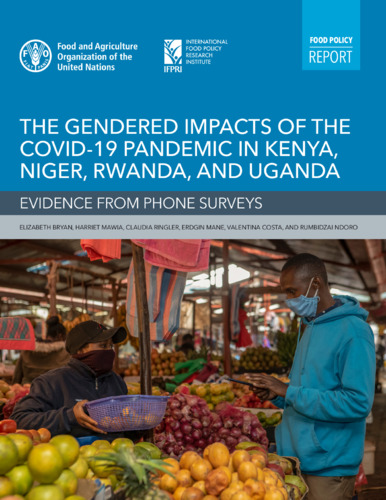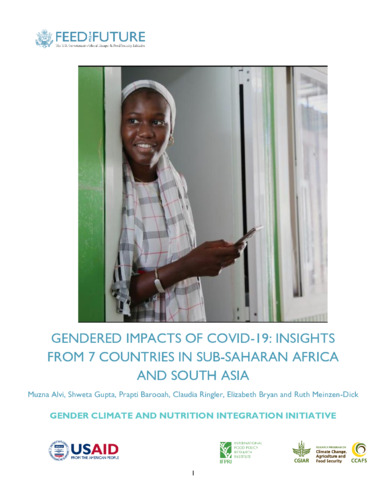Total 5 records
Copy all 5 citations

Report
Déverrouiller le potentiel transformateur des cantines scolaires sur les systèmes alimentaires locaux au Sénégal
2025
Tounkara, Sidy; Faye, Anta; Mingou, Isac; Tall, Laure; Cissé, Fatou Kiné; Ringler, Claudia; Kébé, Seyni; Kanouté, Amadou; Ndoye, Khady Thiané; Dia, Fatou Maissa
...more
Seck, Elhadji

Report
GCAN partner workshop: Report on lessons and recommendations for policy engagement and capacity strengthening
2025Magalhaes, Marilia; Bryan, Elizabeth; Go, Ara

Report
The unjust climate: Measuring the impacts of climate change on rural poor, women and youth
2024Food and Agriculture Organization of the United Nations; Sitko, Nicholas; Cavatassi, Romina; Stafferi, Irene; Heesemann, Esther; Rossi, Jan Martin; Valbuena, Luis Becerra; Rajagopalan, Priti; Kluth, Jessika; Azzarri, Carlo

Report
The gendered impacts of the COVID-19 pandemic in Kenya, Niger, Rwanda, and Uganda: Evidence from phone surveys
2023Bryan, Elizabeth; Mawia, Harriet; Ringler, Claudia; Mane, Erdgin; Costa, Valentina; Ndoro, Rumbidzai

Report
Gendered impacts of COVID-19: Insights from 7 countries in Sub-Saharan Africa and South Asia
2022Alvi, Muzna; Gupta, Shweta; Barooah, Prapti; Ringler, Claudia; Bryan, Elizabeth; Meinzen-Dick, Ruth S.
Copy all 5 citations

